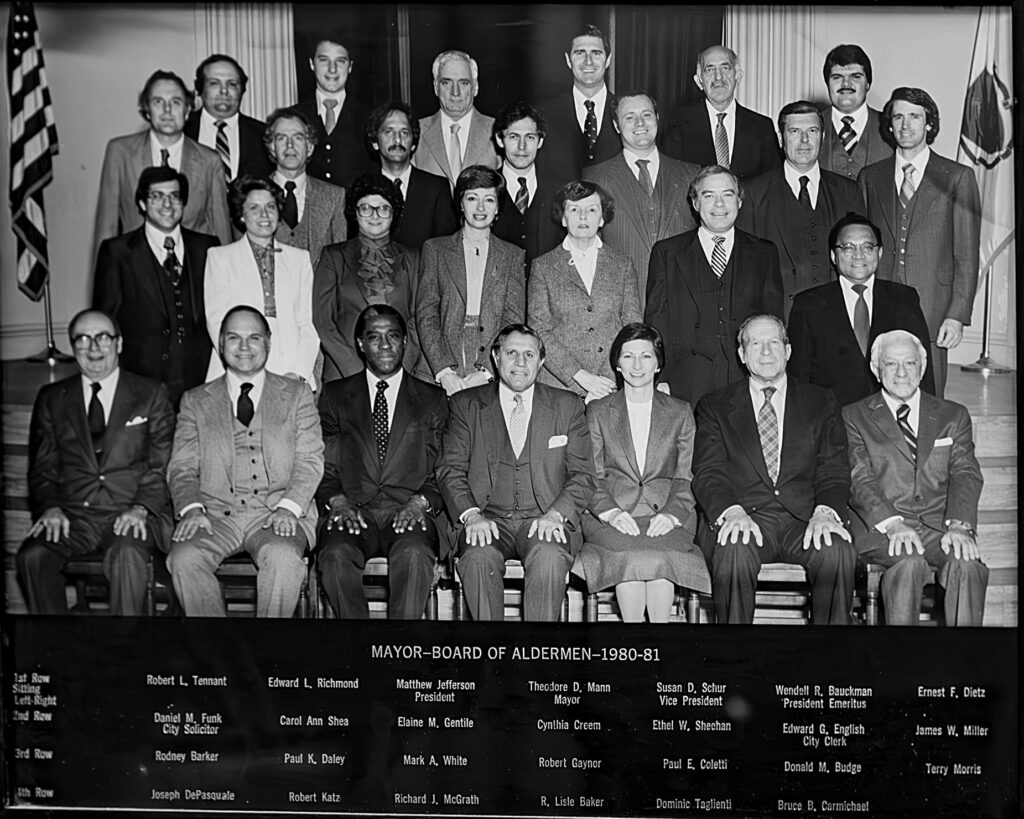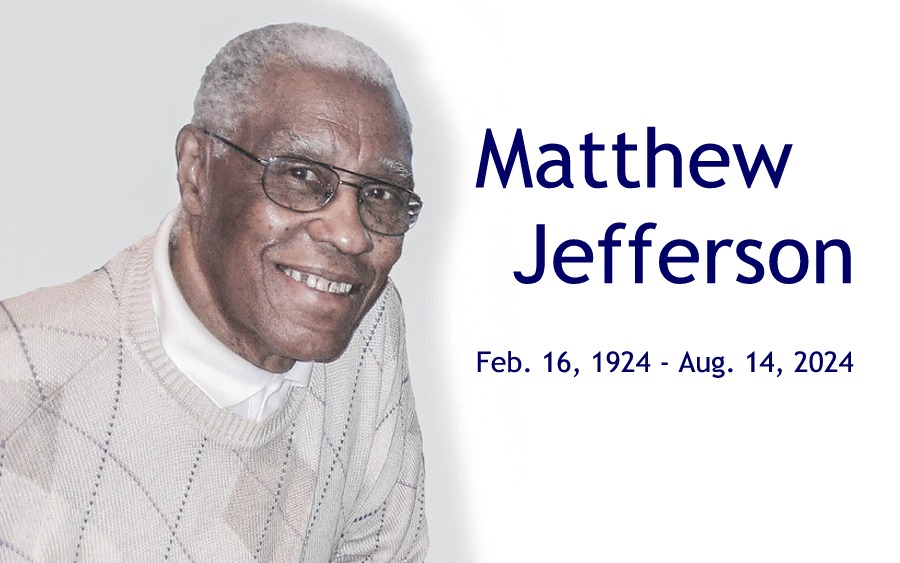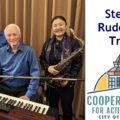In the century since his birth, Matthew Jefferson was part of the engine moving the country toward racial equality and justice. From his earliest days, he broke ground for equality in education, jobs, politics, and law. And as he moved forward, he cleared paths for others to follow.
At his funeral at the Myrtle Baptist Church on August 25, Mr. Jefferson’s family, the Church clergy, and the obituary included in the program described his transcendent life.
When he was ten years old, his parents sent him alone by bus, from South Carolina to Boston for a better education. He was the only Black student in the Boston Trade School class of 1944. In World War II, he helped advance the cause of other Black skilled workers in the U. S. Navy to serve in their fields rather than being used as stevedores. As an electrician at the General Motors plant in Framingham, he pushed for more people of color in supervisory roles.
In Newton, Matthew Jefferson was the first person of color to serve on the then Board of Aldermen. At the same time, he supported the candidacy of Peter Harrington and Harry Crosby, who joined him on the Board and were part of the major political shift to include more Democrats. During his twenty years on the Board, his colleagues elected him President three times. Mr. Harrington credits Mr. Jefferson’s leadership with passage of the Board’s 10% Affordable Housing requirement, compelling developers to contribute to achieving Newton’s housing goal — a major accomplishment. Mr. Jefferson was in the forefront of housing policy, Mr. Harrington said.

Speaking at his funeral — in the church where Matthew and his wife, Lillie, had been leaders — their granddaughter, Shelley Jefferson, noted that they were a “power couple” long before the phrase was in fashion, leading the fight for a better, stronger, more representative community. Their daughter, Dr. Laurie Nsiah-Jefferson, told Fig City News that her parents respected one another and worked together, providing their children and grandchildren with the example of a good marriage and what men and women can be in life.
Mr. Jefferson’s obituary underscores his participation in the 1963 March on Washington, where Dr. Martin Luther King gave his “I Have A Dream” speech, and his participation in the 1995 Million Man March. Reverend Simeon Olapede noted in his invocation that Mr. Jefferson touched so many lives locally, nationally, and across the world.
His grandson, Joseph Matthew Kwabena Nsiah — who had just returned from the Democratic Convention in Chicago and has spent ten years working for Democrats on Capitol Hill — declared that President Barack Obama and Vice President Kamala Harris stood on Mr. Jefferson’s shoulders in their political achievements. Another grandson, Jeremiah Jefferson, noted that his grandfather insisted that his children and grandchildren vote in every election. City Councilor Tarik Lucas read Mayor Ruthanne Fuller’s Proclamation honoring Mr. Jefferson’s life and decades of service.
In her conversation with Fig City News, Dr. Nsiah-Jefferson called the funeral service a celebration of a very good life. In summing up her father’s life, she described Mr. Jefferson as a person who could work with his hands (he was an electrician) and could fix anything. He also used his mind and intellect to understand problems and develop solutions. At the same time, she described Mr. Jefferson as a deeply spiritual man.
The packed church was a measure of his multidimensional life, crowded with members of the Myrtle Baptist community, political allies, current and former members of the City Council, people he mentored, family members, and friends.
The program of the service ends with, “May his soul find eternal peace, knowing he has left a legacy of activism, connection and love.”







